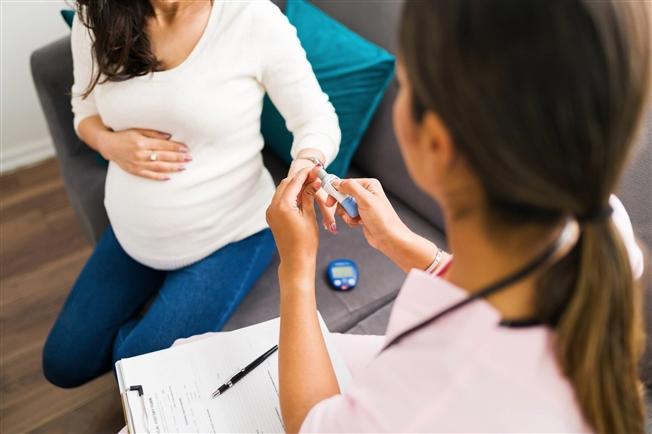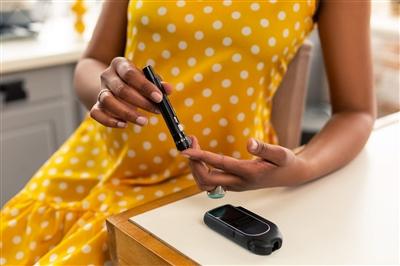What is gestational diabetes? Signs, symptoms and more

Every year, 2 to 10 percent of pregnant women develop gestational diabetes — but what is it?
Gestational diabetes is a condition that causes high blood sugar levels and appears in people who did not have diabetes before pregnancy.
The placenta secretes a ton of hormones during pregnancy, some of which have some anti-insulin effects, explains Taechin Yu, MD an OB/GYN with Main Line Health. These hormones can make it harder for the body to control blood sugar levels after eating.
Interestingly, there are typically no obvious symptoms or signs of gestational diabetes. Pregnant women undergo a routine blood test around 24 to 28 weeks of pregnancy to determine if they’re at risk for gestational diabetes, as this is when the condition usually first appears. In the vast majority of cases, gestational diabetes can improve by changing your diet and adopting a healthier lifestyle, according to Dr. Yu.
Here’s what to know about gestational diabetes symptoms, risk factors and treatments.
What are the risk factors for gestational diabetes?
It’s unclear what causes gestational diabetes, but Dr. Yu says there are likely various contributing factors.
One of the factors could be how foods are prepared and processed. “It’s the food industry and how they process the food — very little things that we eat do not contain sugar,” Dr. Yu says.
There may also be a small genetic component at play. Researchers have identified a number of genes in people who develop gestational diabetes. Furthermore, some people with gestational diabetes also have a family member — like a parent or sibling — who also has some form of diabetes.

How does it impact the health of the mom and baby?
Gestational diabetes affects both mom and baby. The mom may experience weight gain and increased sugar levels. There may be hormonal fluctuations, too, which can cause mood swings.
Pregnant women with gestational diabetes also have a higher rate of Cesarean sections. If the baby is larger, there’s also a higher rate of shoulder dysplasia, which could be traumatic to the baby.
In the long-term, the baby potentially has a higher risk of experiencing metabolic issues, earlier onset of diabetes, along with high blood pressure, thyroid abnormalities, and polycystic ovary syndrome. “One thing leads to another,” Dr. Yu explains.
What are the signs of gestational diabetes?
Pregnant women undergo a routine blood test between 24 to 28 weeks to measure their risk of diabetes, as this around the time when gestational diabetes usually first appears.
Pregnant women who have risk factors for gestational diabetes — such as a high BMI, history of a large baby, or a strong family history of diabetes — typically do the blood test sooner, sometimes between 12 to 20 weeks of pregnancy. “There is no set standard, but the earlier you do it, the better information you have,” says Dr. Yu.
If the blood test results indicate the patient may have gestational diabetes, a second test that lasts three hours is ordered. With the second test, if two out of the four markers are abnormal, then the patient has gestational diabetes.
How is gestational diabetes treated?
Most women who are diagnosed with gestational diabetes are referred to a nutritionist who can help them achieve a healthier diet.

Yu recommends switching to a healthier diet before conceiving. Doing so can help improve your nutrition and BMI in order to set yourself up for a healthy pregnancy. “It’s a matter of eating healthy and eating right — that’s really the best way to try to prevent it, more than anything,” Dr. Yu says
A smaller subset of pregnant women with gestational diabetes won’t respond to dietary changes and will need to start taking insulin. “If you’re on insulin, the tighter control you have of your sugar levels, the better the outcome for you and the baby,” says Dr. Yu.
How does the condition change after childbirth?
“Once you have gestational diabetes, there is a higher risk,” says Dr. Yu. But if you can somehow modify your diet and incorporate lifestyle changes, the risk is a lot less.
Main Line Health serves patients at hospitals and health centers throughout the western suburbs of Philadelphia. To schedule an appointment with a Main Line Health OB/GYN, call 1.866.CALL.MLH (225.5654).